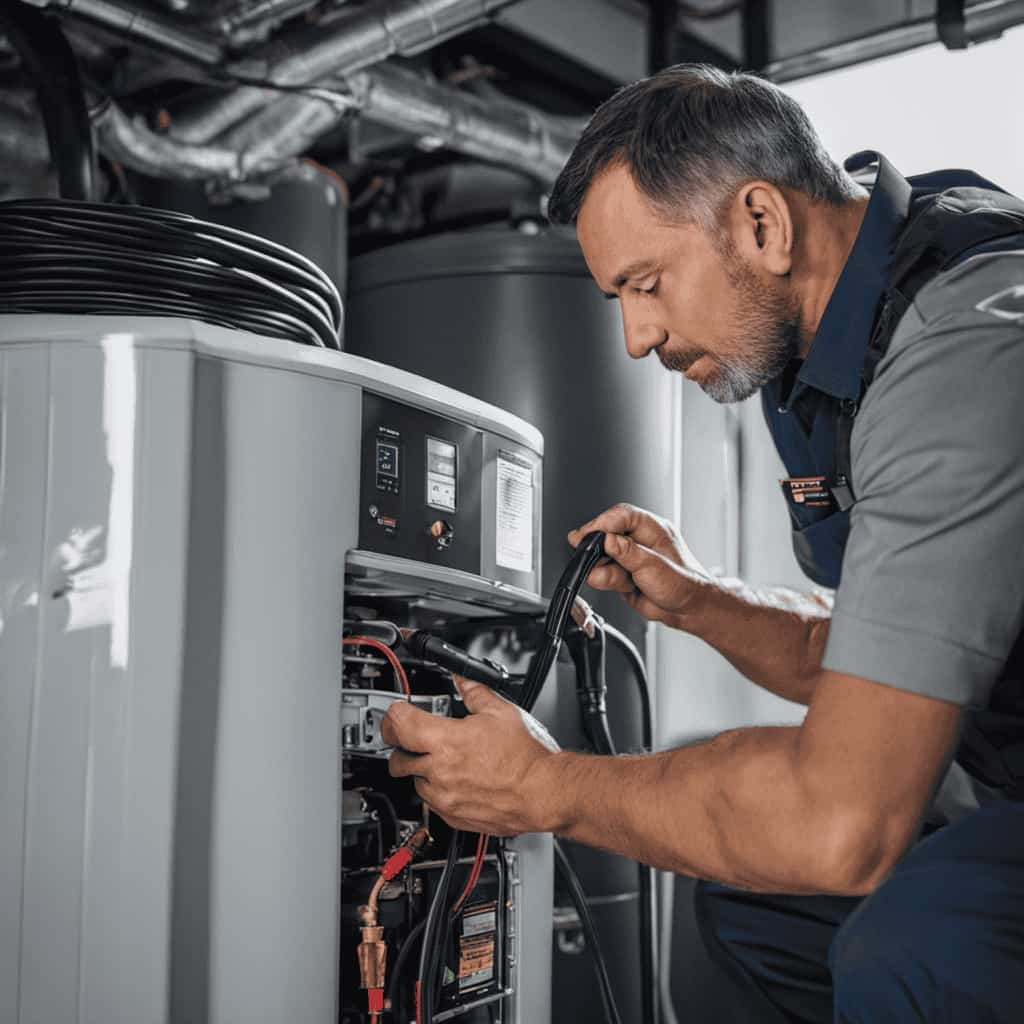We’re excited to share with you a revolutionary solution for minimizing environmental damage: energy-efficient heat pumps.
These technological marvels are revolutionizing the heating industry, offering a more sustainable and cost-effective alternative to traditional systems.
By harnessing the power of renewable energy sources, heat pumps not only save you money but also significantly reduce carbon emissions.
Join us as we explore the incredible benefits and game-changing potential of energy-efficient heat pumps in our quest for a greener future.
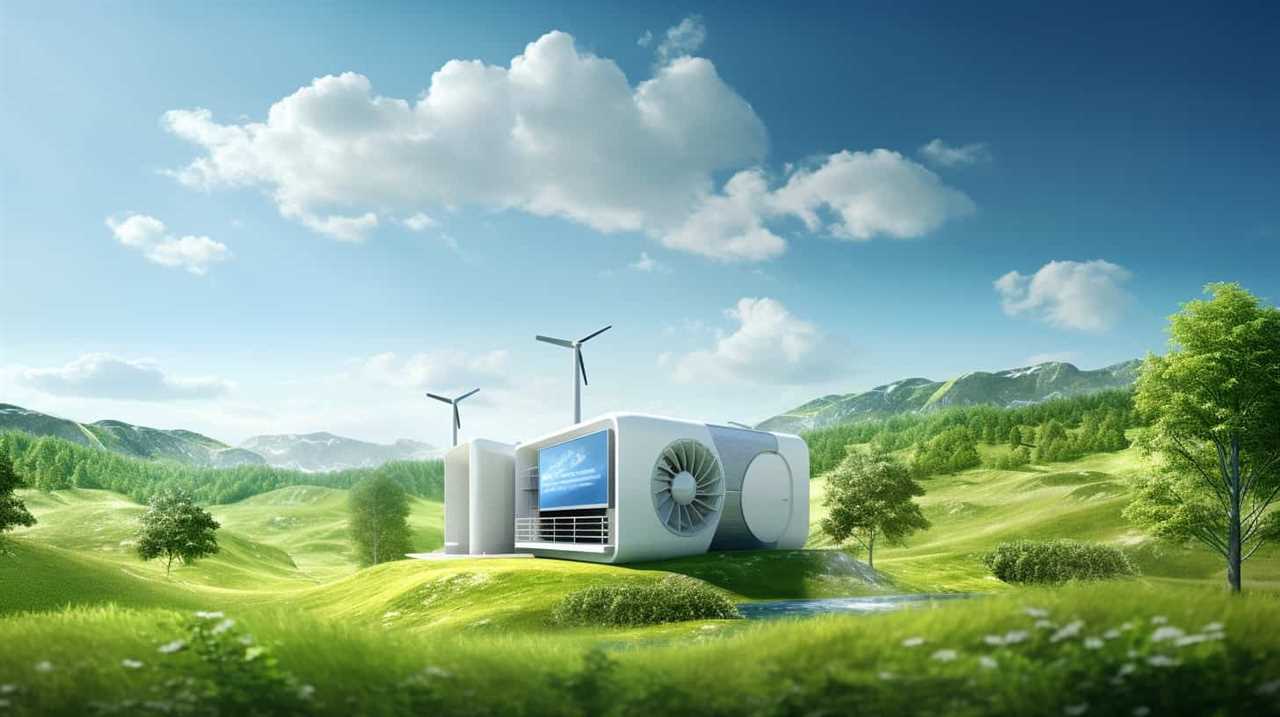
Key Takeaways
- Traditional heating systems contribute to greenhouse gas emissions and air pollution.
- Energy-efficient heat pumps consume less energy and help reduce carbon emissions.
- Energy-efficient heat pumps provide long-term cost savings through lower utility bills and financial incentives.
- Heat pump technology plays a vital role in sustainable energy solutions and contributes to a greener environment.
The Environmental Impact of Traditional Heating Systems
We can’t ignore the significant environmental impact of traditional heating systems. These systems contribute to a range of environmental consequences, including greenhouse gas emissions, air pollution, and resource depletion. According to data from the U.S. Energy Information Administration, residential heating accounts for nearly 20% of total energy consumption in the United States. This highlights the urgent need for alternatives to traditional heating that are more sustainable and energy-efficient.
One promising solution is the use of energy-efficient heat pumps. Heat pumps are devices that transfer heat from one place to another, using a small amount of electricity. Unlike traditional heating systems that burn fossil fuels, heat pumps extract heat from the air, ground, or water, making them significantly more energy-efficient. In fact, heat pumps can provide up to four times more energy than they consume.
Understanding Heat Pump Efficiency Ratings
To fully grasp the benefits of energy-efficient heat pumps, it’s important to understand their efficiency ratings and how they can impact environmental sustainability.
Heat pump performance is measured by two key ratings: coefficient of performance (COP) and seasonal energy efficiency ratio (SEER). COP is the ratio of heat output to energy input, indicating how efficiently the heat pump converts electricity into heat. A higher COP signifies better performance and lower energy consumption. SEER measures the cooling efficiency of a heat pump over an entire cooling season. A higher SEER rating indicates greater energy efficiency and lower electricity usage.

Energy consumption analysis is crucial in determining the overall efficiency of a heat pump. By comparing different models’ COP and SEER ratings, consumers can make informed decisions that reduce energy consumption and minimize environmental impact.
Understanding these efficiency ratings empowers consumers to choose heat pumps that optimize both comfort and sustainability.
Now let’s explore the energy savings and cost benefits of energy-efficient heat pumps.
Energy Savings and Cost Benefits of Energy-Efficient Heat Pumps
Typically, energy-efficient heat pumps offer significant energy savings and cost benefits for homeowners. Through an energy consumption analysis, it’s evident that these heat pumps consume less energy compared to traditional heating systems. This reduction in energy consumption translates into lower utility bills, allowing homeowners to save money in the long run.
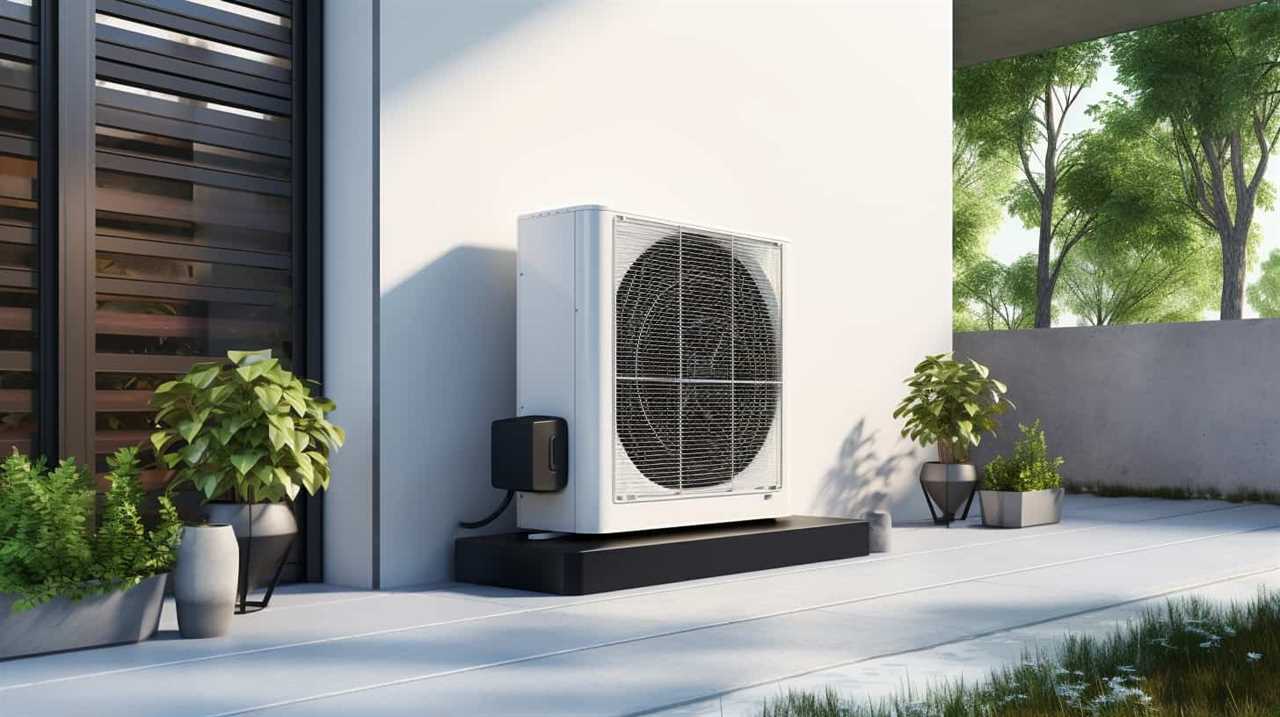
Additionally, energy-efficient heat pumps are eligible for various financial incentives, further enhancing their cost benefits. These incentives can include tax credits, rebates, and grants, which help offset the initial investment cost. By taking advantage of these incentives, homeowners can’t only reduce their environmental impact but also enjoy significant cost savings.
It’s important for homeowners to consider the energy savings and financial benefits when making the decision to invest in energy-efficient heat pumps.
Reducing Carbon Emissions With Energy-Efficient Heat Pumps
By utilizing energy-efficient heat pumps, we can significantly reduce carbon emissions and contribute to a greener environment. Heat pumps are an excellent solution for reducing energy consumption and transitioning to renewable energy sources.
Here are three key ways in which energy-efficient heat pumps help in reducing carbon emissions:
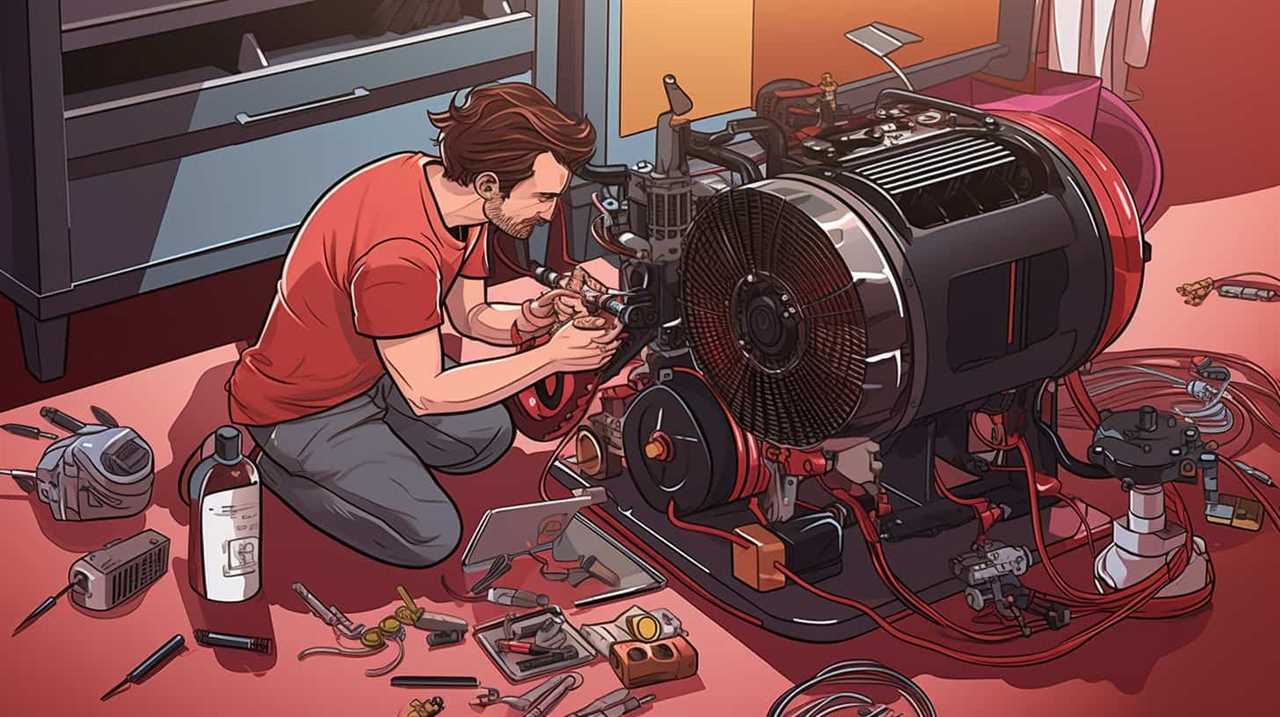
-
Increased Efficiency: Energy-efficient heat pumps use advanced technology to extract heat from the air or ground, requiring less energy to operate. This results in lower energy consumption and reduced carbon emissions.
-
Renewable Energy Integration: By utilizing renewable energy sources such as solar or geothermal power, energy-efficient heat pumps can further minimize carbon emissions. These pumps can efficiently convert the renewable energy into heat, reducing reliance on fossil fuels.
-
Reduced Heating and Cooling Demands: Energy-efficient heat pumps provide both heating and cooling functions, eliminating the need for separate systems. By optimizing energy usage, they decrease the overall carbon footprint associated with heating and cooling.
The Role of Heat Pump Technology in Sustainable Energy Solutions
With its ability to efficiently extract and convert heat, heat pump technology plays a vital role in our pursuit of sustainable energy solutions.

However, integrating heat pump technology into existing infrastructure poses significant challenges. Retrofitting buildings with heat pump systems requires careful consideration of building design, insulation, and distribution systems.
Additionally, the intermittent nature of renewable energy sources creates challenges in balancing energy supply and demand for heat pumps.
Future advancements in heat pump technology aim to address these integration challenges by developing smarter control systems that can optimize energy consumption and improve compatibility with renewable energy sources.
Moreover, advancements in heat pump efficiency and performance will further enhance their role in sustainable energy solutions.
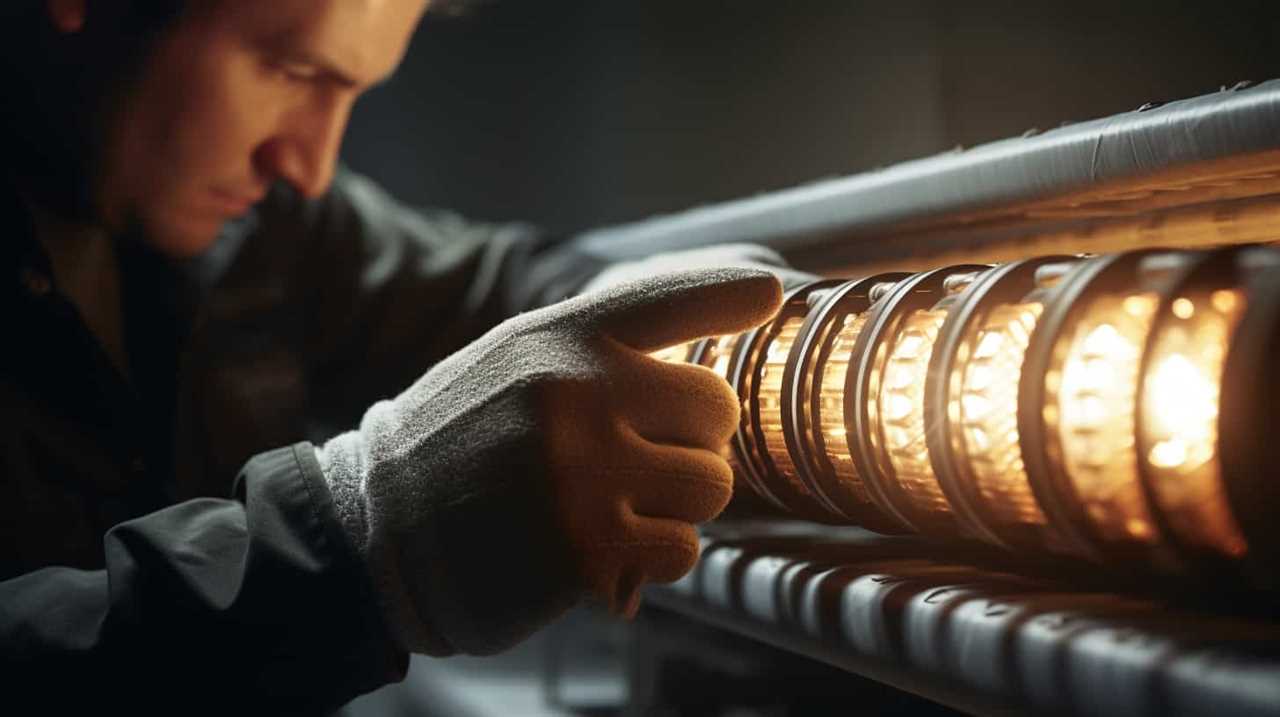
Frequently Asked Questions
Can Energy-Efficient Heat Pumps Be Installed in All Types of Buildings, Including Older Homes?
Yes, energy-efficient heat pumps can be installed in all types of buildings, including older homes. However, there may be installation challenges and cost considerations to address due to the unique characteristics of older homes.
Are There Any Government Incentives or Rebates Available for Installing Energy-Efficient Heat Pumps?
Yes, there are government incentives and rebates available for installing energy-efficient heat pumps. These incentives aim to promote energy savings and reduce environmental harm by providing financial assistance to individuals and businesses.
How Long Do Energy-Efficient Heat Pumps Typically Last Before Needing Replacement?
Energy-efficient heat pumps typically last an average of 15-20 years before needing replacement. The lifespan can vary depending on factors such as maintenance, usage, and the specific model. It is important to check the energy-efficient heat pump warranty for coverage details.
Do Energy-Efficient Heat Pumps Require Regular Maintenance or Servicing?
Yes, energy-efficient heat pumps require regular maintenance and servicing to ensure optimal performance and longevity. By scheduling routine check-ups and cleaning, we can prevent issues and keep the pumps running efficiently, reducing environmental harm.
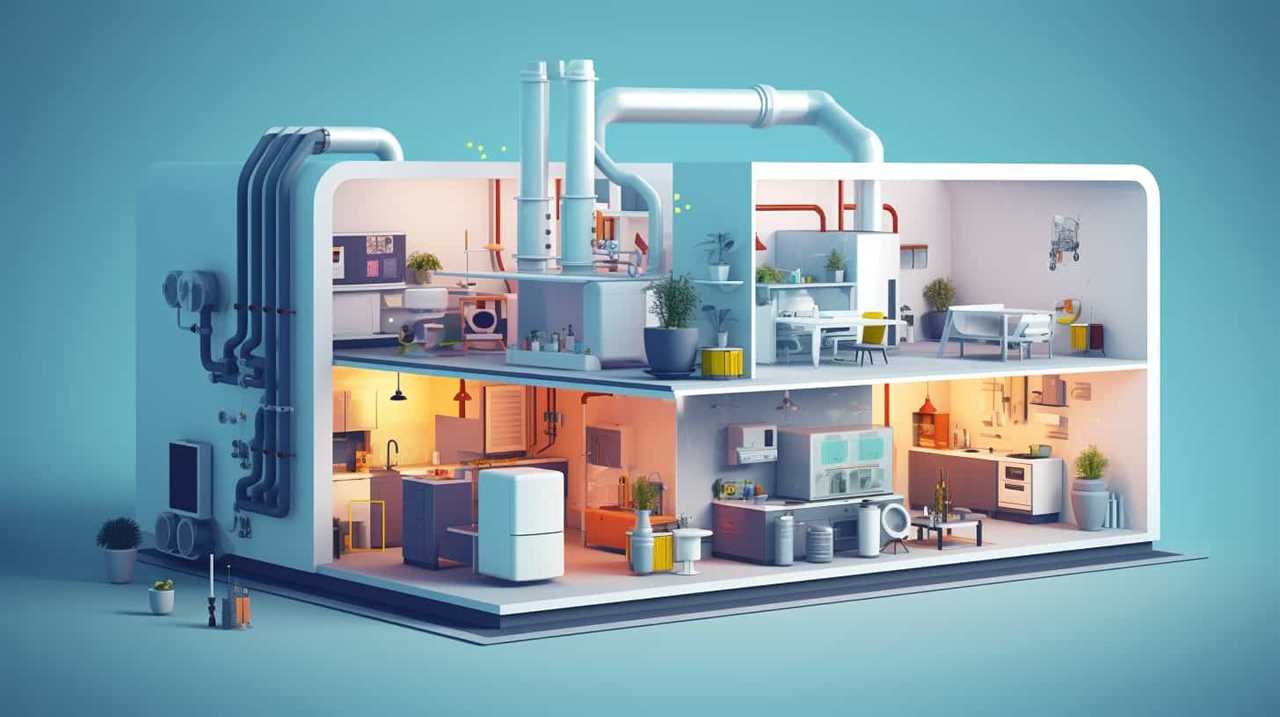
Are There Any Noise Concerns Associated With Energy-Efficient Heat Pumps?
Noise pollution is a concern with energy-efficient heat pumps, affecting both our comfort and the environment. However, regular maintenance and proper installation can mitigate these issues, ensuring a quieter and more eco-friendly operation.
Conclusion
In conclusion, energy-efficient heat pumps offer a compelling solution to reduce environmental harm caused by traditional heating systems. With their high efficiency ratings and significant energy savings, these heat pumps not only help to lower carbon emissions but also provide cost benefits to users.
By harnessing the power of heat pump technology, we can contribute to sustainable energy solutions and make a remarkable impact on our planet’s well-being. It’s time to embrace these revolutionary devices and revolutionize the way we heat our homes.




